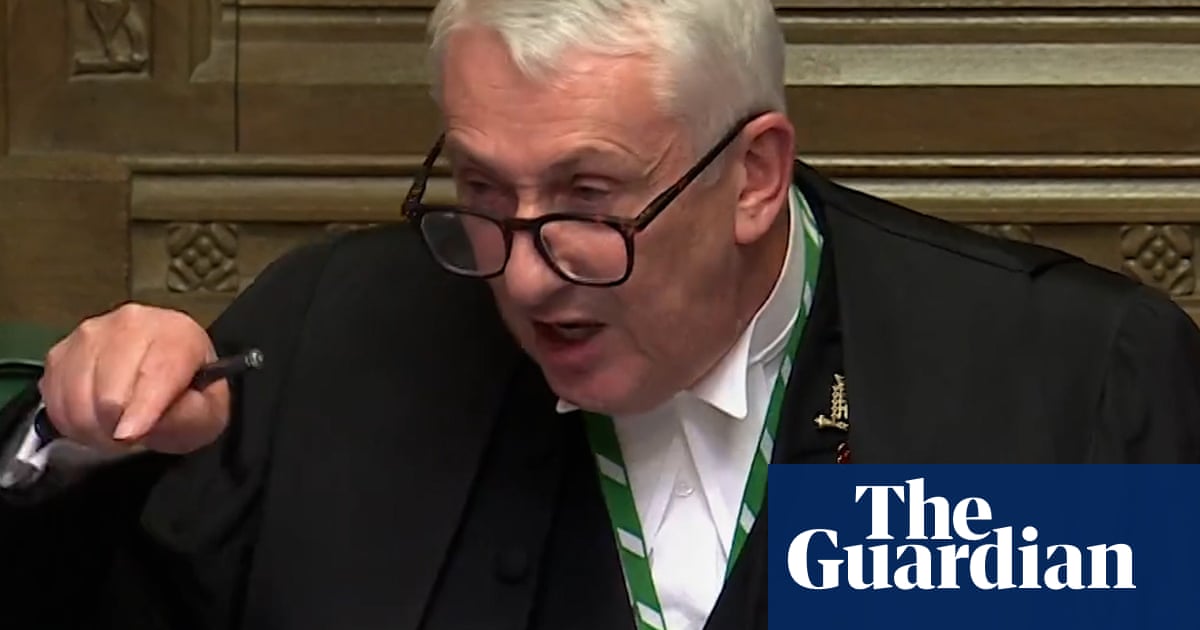Lindsay Hoyle, the speaker of theHouse of Commons, has kept almost 300 gifts over the last four years including dozens of bottles of alcohol, hampers, ties, cufflinks and chocolates, his declarations show.
The speaker received a large volume of presents from foreign dignitaries such as ambassadors, MPs and sometimes companies and chose to keep hundreds of them rather than donating them to Speaker’s House – his residence and office – or parliament.
The list, voluntarily declared by the speaker, includes about 80 bottles of alcohol, such as wine, champagne, whisky, rum and other spirits, since 2021.
Other items retained by the speaker include 26 ties and cufflinks, skincare sets sent to him by Korean diplomats, books, drinking glasses, presents for his pets, a rug, pictures and decorative ornaments.
At Christmas last year, he received hampers from Bahrain and Qatar, plus one from Anguilla containing champagne and two bottles of wine as well as foodstuffs. Priti Patel, the Conservative MP and shadow foreign secretary, has sent him a Christmas pudding at least three years in a row.
On some occasions, the speaker passed on or shared free gifts with his office. When the North Macedonian ambassador gave him food and drink in November last year, he kept a bottle of Smidgin gin and and a bottle of wine and gave four herbal teas and three pots of Ajvar (a red pepper sauce) to his office.
The register gives a glimpse of some of the free gifts offered to politicians, who are only required to declare those worth more than £300, while ministers must declare those worth more than £150.
Tom Brake, the director of the Unlock Democracy campaign group and a former deputy leader of the House of Commons, said: “The speaker’s voluntary declaration of the gifts he receives shines a light on the potential scale of freebies accepted but undeclared by MPs.
“The very generous £300 declaration threshold for MPs needs to be brought in line with the rules that commonly apply in the public and the private sector, where only nominal gifts can be accepted.”
Keir Starmer, the prime minister, previously declared thousands of pounds worth offree clothingand pairs of glasses donated to him by the Labour donor Lord Alli. After a public furore, he and other senior cabinet ministers have said they will not accept freebies while in government.
A spokesperson for the Speaker’s Office said: “As is common practice across the world, the speaker gives and receives gifts when hosting dignitaries as a token of friendship and relationship-building between nations and parliaments. All items are declared proactively – regardless of the £300 threshold applied by the MPs’ register of interests – to ensure transparency and to avoid conflicts of interest.
“In consultation with parliamentary officials,a decision is made as to whether a gift would make a meaningful addition to the Speaker’s House historic collection, and if it should go on display. If the item does not meet those criteria, for example perishable goods, it is either retained personally by the speaker or his office.
“As part of his welcome to visiting dignitaries and to cement friendships, many of the gifted ties and cufflinks are worn by the speaker – and decorative heritage items relating to that country are put on display.”
Hoyle has recently defended himself in relation to spending on oversees trips that amounts to about £250,000 since 2019 on 19 foreign trips.
Sign up toFirst Edition
Our morning email breaks down the key stories of the day, telling you what’s happening and why it matters
after newsletter promotion
The figure includes more than £180,000 on first- and business-class flights, while his stays included hotels in luxury resorts and dining in high-end restaurants.
In his first interviewsince the revelations, Hoyle told the Sunday Times last month that it was his duty to represent the House at home and abroad.
“People see the prime minister going off to the G20 and G7 but, of course, there’s the speaker’s equivalent of that in the same way that the secretaries of state also have their international conferences,” he said.
“Now, there’s two ways we could do it. Leave an empty chair without the UK attending.What does that sayabout the UK’s standing in the world — especially with global events at the moment? But also it’s about using my power and influence in that sense to speak out, because it is about speaking truth to power to the Chinese and to Russia.
“For example, when I go to these conferences, it’s about standing up and leading the rest of the room to tellRussiait had no right to invade the sovereign territory of Ukraine and [that it has] no right to continue that war.”
Hoyle is paid about £160,000 a year and has use of a grace and favour flat in Speaker’s House within the Palace of Westminster.
